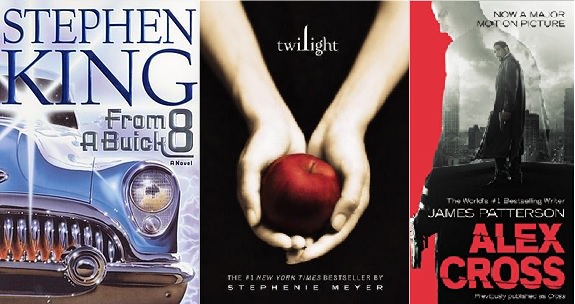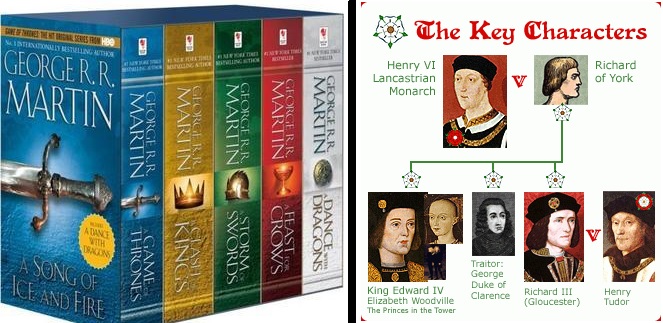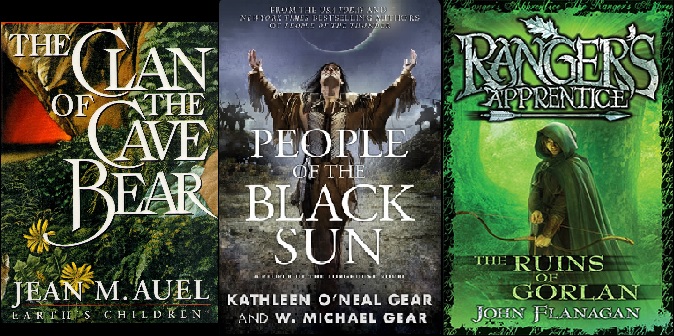Disclaimer: I truly love both anthropology and writing, and my inner nerd for those topics sometimes comes out rather strongly. This is one of those times.
I’ve spent a lot of time speaking with fiction writers and studying the craft of writing, and two authors I met last year (an archaeologist and a cultural activist) lamented the lack of anthropology and archaeology in fiction stories. At the time, I agreed that our field was an untapped source with wonderful details that could easily be adopted for a fictional world. But now… my opinion has shifted a bit.
I still believe that anthropology has a lot to offer writers (and, by proxy, readers!), but I’m not so sure the field is as underrepresented as it might seem on the surface.
Here’s what I mean (and stick with me, here. I promise the slight detour will get us where we want to go):

Fiction writers sometimes get their ideas in really strange places. Stephen King got his idea for From a Buick 8 after nearly falling into a muddy ravine behind an out-of-the-way gas station. Stephenie Meyer’s Twilight began as a dream that stayed with her. James Patterson’s character Alex Cross was modeled from an African-American cook that was a close family friend in Patterson’s youth.
If you ask a writer where to look for inspiration, one fairly common answer is history. One of my favorite authors for discussing the craft of writing regularly encourages new writers to “steal from history – it can’t sue for plagiarism!” This sentiment is echoed with varying degrees of enthusiasm throughout writing conventions and seminars. And it makes sense. The old adage that truth is stranger than fiction is often true, and there are a lot of fascinating people and events from history that can really make a fictional world come to life. For proof, look at the wild success of George R.R. Martin’s Game of Thrones series. A Song of Ice and Fire is heavily inspired by the War of the Roses and the Hundred Years’ War.

Still with me? Good, because this is where we merge back onto the highway.
There’s another very commonly recognized source of inspiration for writers: folklore and mythology. Consider this:
Suzanne Collins was strongly influenced by the Greek myth of Theseus and the Minotaur when she wrote Hunger Games.
The careers of Rick Riordan and James Lovegrove are partly built on the process of adapting the mythology of other cultures and bringing old gods back to life in a very real sense.
Neil Gaiman has a number of books inspired by mythology, including American Gods, Anansi Boys, and The Graveyard Book.
Kevin Hearne’s Iron Druid series, Marion Zimmer Bradley’s The Mists of Avalon, Mercedes Lackey’s The Firebird… the list goes on and on.

The study of folklore and mythology falls under the field of anthropology. What these authors (and many others) have done is to take the mythos of another culture, change it up a bit, and present it as a new story for the modern age. For anyone who has ever enjoyed folk tales or fables, writing in this way can be incredibly fun and gratifying.
But writers often incorporate anthropology in other ways. Just like when they use historical events for ideas and inspiration, writers also turn to existing (or past) cultures to save time with world building.
The setting is incredibly important for creating a good, compelling story, and one of the most effective (and efficient!) ways to build realistic settings is by modeling regions after real world cultures and environments.
Have you ever read a book where familiar places pop up? I live near Chicago, so I regularly see stories based in a fictitious version of the city I know and love (Dresden Files, Divergent, and Chicagoland Vampires immediately come to mind). The bustle of city life can be brought to the page along with a conversion to a magical, dystopian, or supernatural version to suit the story’s needs. Add in the clamoring and clacking of the El, the cheers and groans in open air sports bars on the North Side when the Cubs play, and the sight of bikers and runners along Lake Michigan, and Chicago comes to life as a vibrant background for a good story.

Or what if a writer is interested in a place further from home? Let’s say the Amazon. The environment has wet and dry seasons that have specific effects on local communities. There are a number of dangers from plants, animals, and other people. Deforestation is a problem, and there are valid arguments both for and against logging. Armed with these details, an author can start to build a fictional rainforest environment with realistic interactions and obstacles for the characters.

Ever wanted to go to Paris? Or the African savannah? Or the Alps? Or Hong Kong? Writers research cultures for authenticity. Not only do they gain excellent setting and background info for their worlds, but they get to explore a region they personally find interesting and bring it to life in their own ways in their own stories.
See, that’s the neat thing about fiction. It’s real…to an extent. Smart writers use that to their advantage. They’ll start with a general idea about how people in a certain environment think and behave, sprinkle in a few individuals that do their own thing regardless of the status quo, and make the rest up as they go.
So I don’t think that anthropology is necessarily underrepresented or underappreciated in writing. I think it’s more that authors use their knowledge of culture and history in mostly subtle ways. Yes, there are authors out there that take it to a whole new level. Jean M. Auel, W. Michael Gear and Kathleen O’Neal Gear, and John Flanagan come to mind here, as each focuses on real cultures (or evidence of them in the case of prehistoric cultures), and these authors are incredibly effective at it.

I think these are the kinds of writers the archaeologist and activist were thinking of when they made the comment about needing more anthropology in fiction stories. But as much as I love stories told by anthropologists like Auel and Gear & Gear and history buffs like Flanagan, trying to emulate that level of cultural focus isn’t necessary to craft a good fiction story. It’s not just that the cultures and environments are believable and accurate as far as we can tell. It isn’t that they stand out as unusual because anthropology is underrepresented. It’s really about the passion with which these authors tell their tales. Their extensive knowledge of certain cultures and time periods helps to breathe life into the pages they write and make their stories feel real, and this is where I think anthropology shines as an important crafting tool.

In regards to the authors I met last year, I’m always up for a good adventure involving tomb curses, awakening an ancient evil, or the excavation of an artifact that gives the wielder immense power. But those types of stories are truly fantasy rather than representations of anthropology. So unless someone out there thinks it would be fun to read a fiction book about taking lots of notes and sifting through bucket after bucket of dirt, perhaps it’s best to use anthropology to help craft writing rather than actually writing a fiction story about anthropology itself. Then again, with the aid of magic and/or a werewolf or two, even a tedious excavation might be interesting to read about. Stranger things have happened!